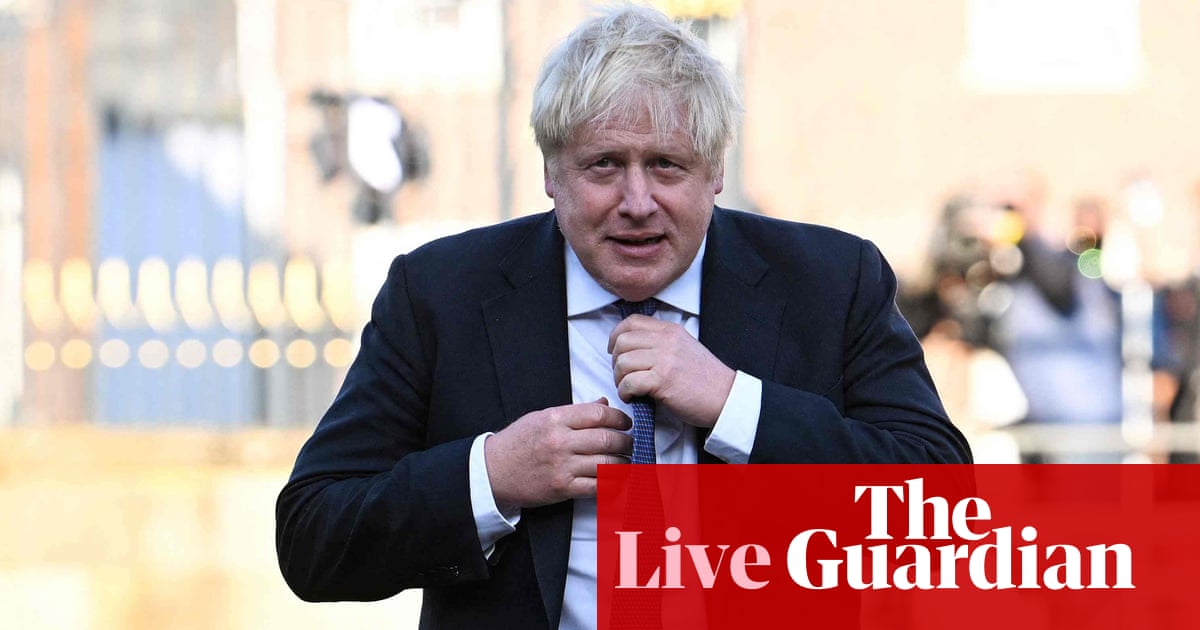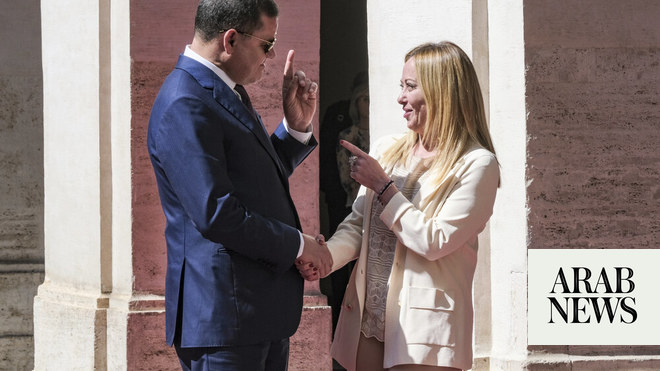
Security experts and opposition MPs on Monday condemned David Frost’s appointment as Boris Johnson’s national security adviser, arguing that his political status and lack of direct experience would undermine his effectiveness.
Lord Ricketts, the first person to be appointed to the role when it was created in 2010, said it was his job to provide “politically neutral advice” to the prime minister, allowing the politicians to “work out what they wanted to do”.
“David Frost has explicitly been appointed as a political appointee. So that is confusing the lines between civil service advice and the political, the party-political angle which ministers normally bring and that worries me,” the peer added.
Lord Wood of Anfield, a former foreign policy adviser to Gordon Brown, said all four previous national security advisers had been civil servants, and he argued their job was to coordinate security efforts across a range of ministries.
“In the area of national security, the considerations of the PM’s political fortunes need to be nowhere near the reasoning of the national security adviser,” Wood said.
“Being a political appointment means you have your eyes on the political consequences of actions, and the political motives of taking them in the first place.”
Frost’s surprise appointment was announced late on Sunday in the aftermath of the departure of Sir Mark Sedwill, the cabinet secretary, who had also held the national security post since 2017.
The aide to Johnson will start in the job in August and combine it with his existing roles as the prime minister’s Europe adviser and chief Brexit negotiator, also prompting complaints he would lack time to do the job properly.
Created when David Cameron was prime minister, the national security adviser’s role is to coordinate the work of the national security committee, a weekly meeting between senior ministers and intelligence service chiefs.
Former officials say the post was in part intended to formalise relationships between ministers and Britain’s spy agencies, who had been criticised for allowing themselves to become too politicised under Tony Blair in the run-up to the Iraq war.
Alex Thomas, a former civil servant now based at the Institute for Government, said: “It’s right that the prime minister chooses who he wants around him, but one of the questions is whether there will be too much informal decision-making again.”
Frost will be made a peer, although not a minister. To allow him to maintain his political status Whitehall sources said he was not expected to act as the accounting officer for the spy agencies’ £3.23bn budgets, a role that can only be undertaken by a civil servant.
Conservatives close to Downing Street said that Frost’s appointment would bring focus to a policy area that Johnson was not believed to be particularly enthusiastic about. “I think it came as a surprise to Johnson how ruthless the Russians could be,” one adviser said.
They also believe it is likely to allow for a change of heart on issues such as Huawei, where Sedwill and the intelligence agencies had advised the prime minister it would be safe to allow the Chinese company limited access to 5G networks. The policy is under review after a Tory revolt.
Alan Mendoza, the executive director for the Henry Jackson Society, which has been leading the anti-Huawei campaign, said: “This is a chance for the government to reset its national security agenda beyond its previous narrow confines.”
Unlike Sedwill, a career diplomat who had been posted in sensitive countries such as Iraq and Pakistan before becoming ambassador to Afghanistan and permanent secretary to the Home Office, Frost’s Foreign Office career peaked when he became ambassador to Denmark and the Foreign Office’s director of strategy at the end of the last decade.
Few colleagues in the civil service believed Frost was going to rise much further. After a spell as a trade negotiator at the department for business, he left the civil service in 2013 to become the chief executive of the Scotch Whisky Association, where he remained a relatively low-profile figure.
David Henig, a former civil service colleague, remembers Frost as “diligent and capable” but said that he would have had little or no dealings with the National Security Council previously because it was set up in 2010 as he was leaving the Foreign Office.
Instead he retained political links through rightwing thinktanks such as Open Europe and the Henry Jackson Society. That paid off when he became a policy adviser to Johnson when the latter was foreign secretary between 2016 and 2018.
“Boris hired him because he was a bridge between the political class and the civil servants,” a former fellow special adviser said. “This is not a man who is anti-civil service, he just wants to make the machine work for the prime minister.”
Known universally in Brexit circles as Frosty, the former diplomat returned to government after Johnson became prime minister, as his Europe adviser. He become the lead Brexit negotiator at the end of January with a 4o-strong team as the Department for Exiting the European Union was wound up.
Frost was trusted sufficiently to regularly brief journalists on the state of the Brexit negotiations and, unusually for an aide, gave a blunt speech in Brussels in February where he warned that the democratic consent of the British public would “snap dramatically and finally” if the UK continued to be tied to EU rules.












